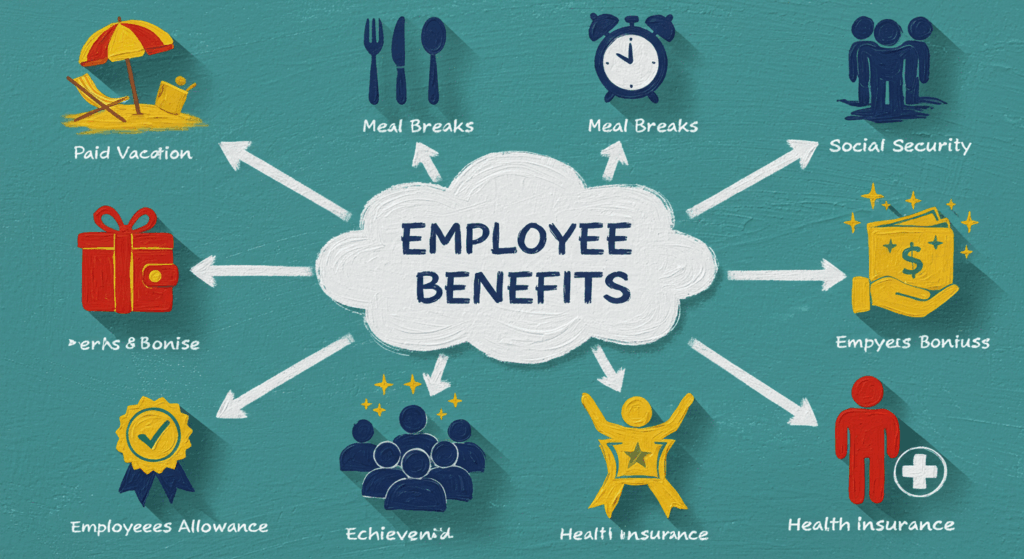Sitting in that coffee shop at 2 AM, staring at job postings and wondering if we should take that boring but well-paying corporate job or chase after something that actually makes us excited to get out of bed in the morning. It’s probably one of the most universal struggles of our generation, and honestly? There’s no perfect answer.
The whole “follow your passion” thing sounds amazing in theory, doesn’t it? But when you’re looking at your student loan balance or thinking about wanting to buy a house someday… well, let’s just say passion doesn’t always pay the bills. And that’s the reality we need to talk about.
The Case for Following Your Heart (And Why It’s Complicated)
You know what’s interesting? People who choose jobs they’re passionate about tend to have improved career growth rates because they’re more willing to put in extra work to achieve their goals. That actually makes a lot of sense when you think about it. When you love what you’re doing, those late nights and weekend projects don’t feel like torture – they feel like progress.
I remember talking to my friend Sarah about this. She left her marketing job to become a freelance photographer, and yeah, her income took a massive hit at first. But the energy she had? Completely different. She was networking like crazy, taking on projects at weird hours, constantly learning new techniques. That passion-driven motivation is real, and it can actually accelerate your career in ways that just showing up for a paycheck can’t.
But here’s the thing – and this might sound harsh – not all passions are created equal when it comes to making a living. If your passion lies in IT or business, you’re more likely to get a steady salary from something you enjoy doing. However, many people have passions that don’t necessarily translate to promising job outlooks.
That’s the uncomfortable truth nobody wants to talk about. Your passion for 15th-century poetry might be genuine and meaningful, but the job market for medieval literature experts is… well, let’s call it niche.
The Hidden Benefits of Passion-Driven Careers
Beyond just the motivation factor, there are some genuinely compelling reasons to consider the passion route. Research shows that employees in careers they’re passionate about report higher long-term satisfaction and are more likely to stay in their jobs longer, ultimately allowing them to accumulate more wealth than those who switch careers frequently out of dissatisfaction.
Think about it – job hopping might seem like a quick way to boost your salary, but all that instability, the constant job searching, the stress of starting over… it adds up. When you’re in something you actually care about, you tend to stick around, build relationships, develop expertise, and eventually – hopefully – the money follows.
The Money Talk: Why Financial Security Isn’t Shallow
Now, before anyone starts rolling their eyes about being “materialistic” or whatever, let’s get real about money for a second. Research shows that money is indeed associated with happiness to a certain extent. People making below $75,000 annually are generally less happy.
That’s not being shallow – that’s being human. Money represents security, options, the ability to help your family, to not lie awake at night stressing about rent. Higher pay provides individuals with more financial freedom and choices. They can save, invest, and plan for their future, allowing them to make decisions that align with their long-term goals.
And you know what? Sometimes taking that higher-paying job that you’re not crazy about can actually give you the financial foundation to pursue your passions later. I know people who worked in banking for five years, saved aggressively, and then had the financial cushion to start their own business or go back to school for something they really cared about.
The Reality Check Nobody Wants to Hear
Here’s something that might sting a little: Your career takes up 70% of your adult life. That’s a massive chunk of time. If you spend it doing something that drains your soul just for the paycheck, that’s… well, that’s a lot of soul-draining.
But on the flip side, if you choose passion over everything and end up constantly stressed about money, unable to afford the life you want, or watching your friends advance while you struggle – that’s soul-draining too, just in a different way.
The Middle Ground: Because Life Isn’t Black and White
Here’s what I’ve learned after watching friends go both routses, making both choices myself at different points: maybe the whole either/or mentality is the problem. Life is messy, careers are long, and most of us are going to have multiple jobs anyway.
You can make career changes more financially manageable by transitioning slowly. Try reducing your working hours to three to four days per week, allowing you to study or volunteer in your new industry on the side. That’s actually brilliant advice that more people should consider.
What This Might Look Like in Real Life
Maybe you start with the practical choice – that stable job that pays well and gives you skills. But you use that stability to explore your interests on the side. Take classes, volunteer, freelance a little. Build up expertise and connections in the field you’re actually interested in.
Or maybe you go the passion route first, but you’re strategic about it. You look for ways to monetize what you love, you develop business skills alongside your creative skills, you network like your life depends on it.
The point is, it doesn’t have to be a permanent decision made at 22 that defines your entire life. Values are the foundation for your passion and purpose – they define what is important to you and can influence the passions you pursue and the purpose you seek to fulfill.
The Questions You Should Actually Be Asking Yourself
Instead of just “passion or paycheck,” try asking yourself these:
What can I actually live with? Not what sounds good in theory, but what can you realistically handle day to day? Some people genuinely don’t mind doing work they’re not passionate about as long as it pays well and gives them freedom outside of work. Others wither away in jobs that don’t engage them, regardless of the salary.
What are your non-negotiables? Maybe you absolutely need to make a certain amount to feel secure. Or maybe you absolutely need work that feels meaningful. Both are valid, but be honest about what yours are.
Where do you see yourself in 10 years? And I don’t mean the interview answer – I mean really. What kind of life do you want? What will it cost? And what trade-offs are you willing to make?
Also, what does “success” actually mean to you? Because if your definition of success is having enough money to travel the world, taking a low-paying job in a field you love might not get you there. But if success means making a difference in your community, that high-paying corporate job might leave you feeling empty.
The Uncomfortable Truth About “Follow Your Passion”
Look, I have to say this: The advice to “follow your passion” has become so common that researchers are actually questioning whether it’s good advice, with some studies suggesting it may limit career choices and unintentionally exacerbate problems like the gender gap.
The problem with “follow your passion” is that it assumes everyone has one clear passion, that passion automatically translates to viable career options, and that passion alone is enough to sustain you through the inevitable challenges of any career.
But passion can be developed. Interest can grow into expertise, and expertise can grow into passion. That boring accounting job might not seem passionate now, but if you become really good at financial analysis and start helping small businesses grow – well, that might become something you’re genuinely excited about.
So… What’s the Answer?
The honest answer? It depends. I know, I know – that’s not the clear-cut advice you were hoping for. But here’s what I’ve observed from people who seem genuinely happy with their career choices:
They found a way to align their work with their values, even if it wasn’t their “dream job.” They were strategic about their choices, thinking long-term rather than just about immediate satisfaction or immediate payoff. And they stayed flexible, adapting their path as they learned more about themselves and the world.
Maybe that means starting with financial security and gradually shifting toward passion. Probably it means pursuing passion but being smart about the business side. Maybe it means finding passion in mastery and growth rather than in the subject matter itself.
The key is being honest with yourself about what you actually need – not what you think you should need, not what sounds good when you’re talking to friends, but what will actually let you sleep at night and feel good about your choices.
Final Thoughts: Give Yourself Permission to Change Your Mind
Here’s the thing nobody tells you: you don’t have to get this decison “right” the first time. Or the second time. Your twenties are for figuring things out, your thirties might be for course-correcting, and your forties could be for a complete pivot – and that’s all completely normal.
The bottom line is that people should spend their days doing what they love, and if they don’t work at their passion, they should find something outside of work that they’re passionate about. That’s actually pretty wise advice. Your career doesn’t have to be the only source of meaning and fulfillment in your life.
Whether you choose the practical path or the passionate path or some combination of both, remember that careers are long, life is unpredictable, and the most important thing is making choices that feel authentic to who you are right now, while leaving room for who you might become.
And honestly? Maybe the real answer isn’t in choosing between salary and passion, but in getting better at creating opportunities where you don’t have to choose at all. But that’s a whole other conversation for another day.
What do you think? Have you been wrestling with this same dilemma? Because if there’s one thing I know for sure, it’s that most of us are just figuring it out as we go along – and that’s perfectly okay.









